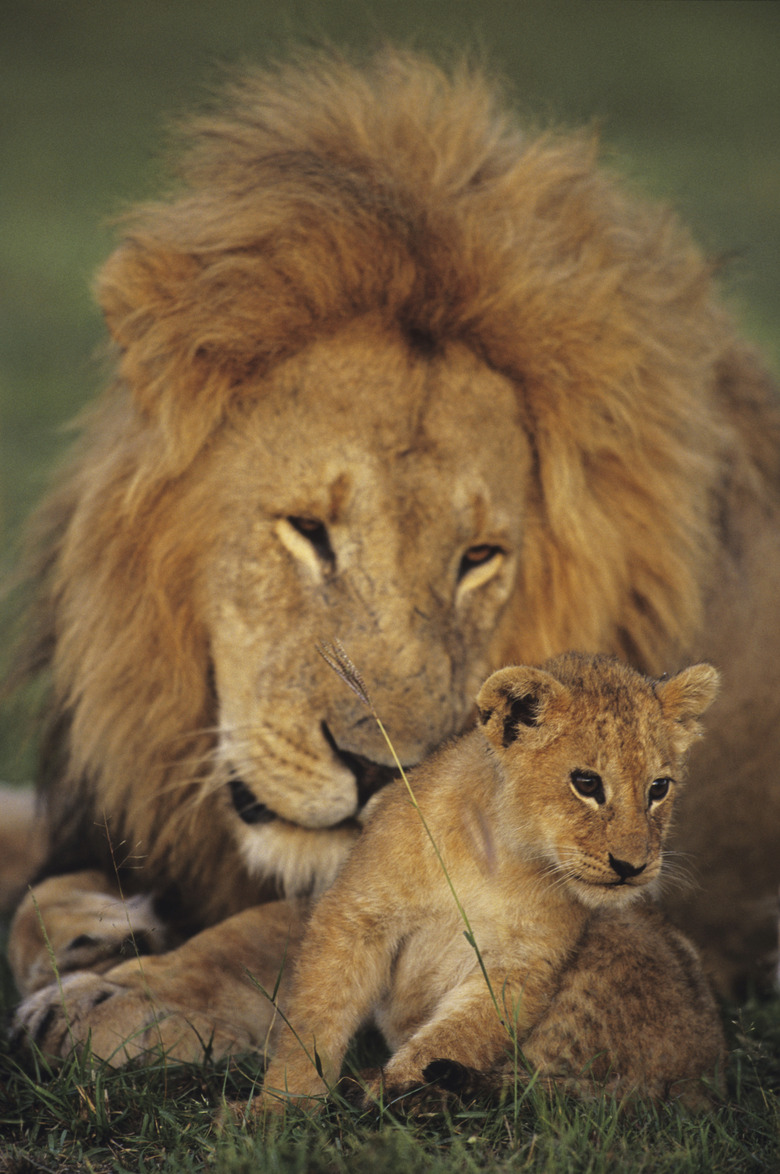Life Cycle Of The Lion
When it comes to well-known animals, few are as beloved as the king of the forest. Yet the lion life is not an easy one. While wild lions face certain dangers, the lifestyle of lion prides also bring important milestones associated with the lion life cycle.
TL;DR (Too Long; Didn't Read)
Wild lions reproduce approximately every two years, producing litters after a gestation period of 108 days. At sexual maturity, which occurs near three years of age, some female lions remain with the pride while others join another pride or become solitary. All male lions leave the pride at three years old. The lion lifespan is approximately eight to 10 years in the wild but can exceed 25 years in captivity.
Lion Life: Mating
Lion Life: Mating
Like all mammals, the lion lifespan begins with sexual reproduction. Female lions, or lionesses, have irregular reproductive cycles with fertile periods lasting three to four days. During that time, the lioness mates with one of the male lions from the pride as often as every 20 minutes. Researchers believe this high frequency stimulates ovulation and ensures the male lion's parentage. Once pregnant, lions gestate for approximately 108 days and usually birth litters of two to four cubs, although a litter can include between one cub and six cubs. While lions in captivity may breed every year, wild lions only mate every two years or even less frequently.
Lion Life: Juveniles
Lion Life: Juveniles
Lion cubs emerge completely blind and covered with thick fur with dark spots that disappear as they age. Newborn cubs are dependent on their mothers and remain in their care for approximately two years. However, this maternal care is not very careful, and lionesses may leave their cubs alone for an entire day, resulting in a very high mortality rate among lion cubs under two years of age.
Lion Life: Adults
Lion Life: Adults
Among wild lions, sexual maturity occurs between three and four years of age. At that time, some female lions remain with their pride while others must find new prides or become solitary lionesses. All male lions must leave the pride at three years old. Many remain solitary with little opportunity to mate while others devote their adulthoods to attempting to take over a pride. Adult lions may form alliances to strengthen their efforts to conquer a pride. If successful, the new pride leaders often kill the young cubs in the pride to facilitate mating with the lionesses. While the captive lion lifespan may extend to 25 years or longer, lions in the wild rarely survive longer than eight or 10 years. Wild lions most commonly succumb to injuries resulting from attacks by humans or other lions or defensive wounds from prey animals.
Cite This Article
MLA
Mayer, Melissa. "Life Cycle Of The Lion" sciencing.com, https://www.sciencing.com/life-cycle-lion-5166161/. 25 July 2018.
APA
Mayer, Melissa. (2018, July 25). Life Cycle Of The Lion. sciencing.com. Retrieved from https://www.sciencing.com/life-cycle-lion-5166161/
Chicago
Mayer, Melissa. Life Cycle Of The Lion last modified March 24, 2022. https://www.sciencing.com/life-cycle-lion-5166161/
